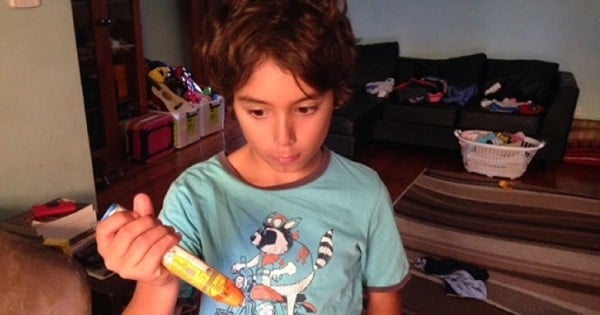Each year it seems an increasing number of food items are banned at primary schools around the country.
As part of a national standard all Australian primary school implement a nut ban, and then each school uses their own discretion to ban other foods students are allergic to such as egg and fish.
Every year when the notes are handed out about food bans at school I hear parents – particularly new parents – complaining.
“But little Johnny only every eats peanut butter sandwiches. Why should he miss out because some other kid is allergic?”
“Jenny always eats boiled eggs. I should be able to pack them in her school lunch.”
Listen to Jo Abi talk about school lunch bans on This Glorious Mess.
I’m an allergy mum and most of the time I bite my tongue when I overhear these conversations, hoping once the parents stop complaining they just following the rules of the school. I know that most parents do, I also know that some parent’s don’t.
Let me ask you this…
How would you feel if a lunch you packed for your child killed my son who is allergic to egg and nuts? How would your child feel?
Could you live with yourself, knowing you deliberately disobeyed the rules of the school and now an innocent child is dead?
I didn’t think so.





























































































